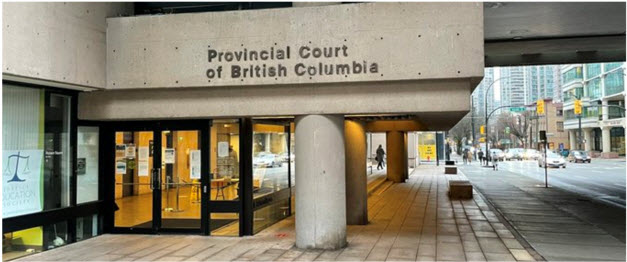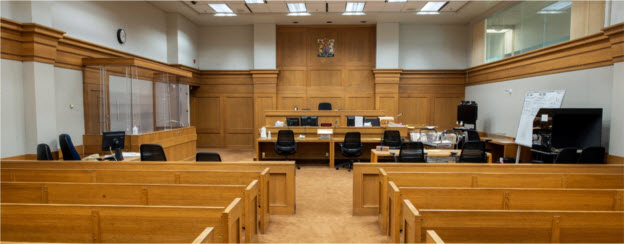The Law Society of BC is working with other groups to see whether access to justice can be improved by having non-lawyers provide competent and affordable legal services to people who aren’t otherwise getting legal help. In keeping with its commitment to improve access to justice and ensure there is clear information about when and in what circumstances non-lawyers can appear in court to assist people, the Provincial Court has issued a practice direction.
Practice Direction GEN 05 Non-Lawyers Appearing for Clients in Court deals with three types of non-lawyers. It sets out when designated paralegals, certain non-lawyer agents, and proponents of the Law Society’s Innovation Sandbox generally may appear in court to represent a client. However, the presiding judge or judicial justice can prohibit a non-lawyer from representing clients in court if it would be inconsistent with the proper administration of justice.
Designated paralegals
A designated paralegal is one that a supervising lawyer has deemed to have the requisite knowledge and skills to perform additional duties, including appearing for clients in court. There is currently no certification process to become a designated paralegal, nor are designated paralegals regulated by the Law Society. The lawyer using their services is responsible for training, designating, and supervising a designated paralegal.
The Practice Direction sets outs:
- the types of proceedings on which designated paralegals may not appear, generally including conferences, trials, other contested matters, and indictable offences
- the steps designated paralegals must take before and while appearing in court, including obtaining the permission of the presiding judicial officer to appear
- the requirement that their supervising lawyer be available by telephone or other electronic means whenever they provide certain services, including representing clients in court

Non-lawyer agents
This refers to a person who is not a lawyer and seeks to appear in court as a representative on behalf of a litigant. However, the practice direction’s definition of non-lawyer agents excludes certain groups whose appearance as agents is covered by federal and provincial laws. Those excluded are:
- Native Courtworkers (Criminal Code s. 802.1, OIC 394/2018)
- articled students, temporary articled students, or law students supervised by a practising lawyer and appearing on criminal matters while participating in a program listed in OIC 478/2019 (Criminal Code s. 802.1)
- non-lawyer agents under the Court Agent Act
Non-lawyer agents covered by the practice direction may only appear in court to seek an adjournment of a family, small claims, or summary conviction criminal matter. And they may only represent clients in court if one of these statements applies:
- they are supervised and employed by a lawyer
- they are making the appearance for free
- they are representing a defendant who is an organization

Proponents of the Law Society’s Innovation Sandbox
The Law Society of BC has set up an “Innovation Sandbox” to allow people not currently authorized to provide legal services to test new ways of providing those services with adequate protection for the public. Its “proponents” are non-lawyers who have applied to the Law Society to provide legal services and been given a "no-action" letter. The letter states that the Law Society will not take legal action against the proponent for practising law without a licence as long as they meet certain conditions. Approved proponents are listed on the Law Society’s website.
Practice Direction GEN 05 sets out the steps Innovation Sandbox proponents must take before and while appearing in court, including obtaining the permission of the presiding judicial officer to appear. They are only permitted to represent clients in court within the scope of the services outlined in their “no action” letter.
More information
It’s essential to read Practice Direction GEN 05 if you are:
- a person wanting a non-lawyer to appear in BC Provincial Court for you
- a non-lawyer wanting to appear in the Court
- a lawyer responsible for a non-lawyer appearing in the Court
It is the Practice Direction, not this article, that governs non-lawyers’ court appearances.
Support persons
The rules are different for support persons who may sit beside a litigant during a trial to offer emotional support and help organize their material without speaking on their behalf.

